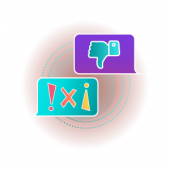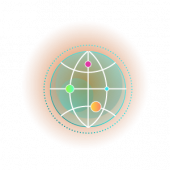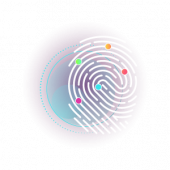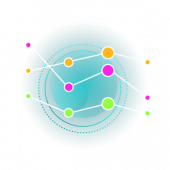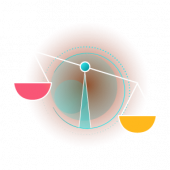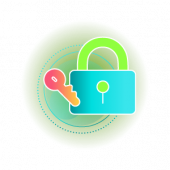How should I guide my children about digital footprint?
Deep Web and Dark Web: What Are They?

What is the Deep Web?
Deep web refers to information and websites that are not indexed using regular search engines, or password protected, which means it’s not accessible and cannot be retrieved by researching through the regular search engines. Thus, this information called invisible information. Facebook posts and profiles, banking details, Amazon account, and our mailbox, are considered deep web information because they are not accessible by the public using a simple search request. As well some other information or websites that are not registered or published on the search engines, or have been made private by their owners, are considered part of the deep web content as well.
Is accessing deep web information harmful or illegal?
Your bank details, mailbox, Facebook account, Amazon account, or any other information you can access using a password or through a certain subscription is considered deep web information. Accordingly, it is not harmful. On the other hand, websites that their owner forgot to register or intentionally decided to not publish on any of the search engines for security reasons and privacy, are considered Deep web information.
How can the Deep Web content be searched?
The Deep Web content is not indexed in regular search engines, therefore not accessible, and a special search engine is required. Those engines do have some additional characteristics which help in granting users access to hidden information:
- Infoplease is a reference and learning site, combining the contents of an encyclopedia, a dictionary, an atlas, and several almanacs loaded with facts. Our editors update and regularly refine this enormous body of information to bring you reliable information.
- The WWW Virtual Library is considered one of the oldest archives in the whole World Wide Web, the WWW Virtual Library has an index with results pertaining to everything from agriculture to social and behavioral sciences. The search engine was created by the same man who created the foundations of the web itself, Tim Berners-Lee, so you know it is the real deal.
- Duckduckgo like many other deep web search engines on this list, also lets you search the regular web—has a clean and easy-to-use interface and does not track your discoveries. The options for topics to search are endless, and you can even customize it to enhance your experience
Yet, the question still valid, there is a lot of confusion between Deep Web and Dark Web, and most of the time both terms are used interchangeably which increases the confusion.
Then what is the Dark Web?
Similar to the Deep Web, the information on the Dark Web is not indexed and not accessible using regular search engines, as well most of them are hosted using .onion instead of .com, .org, or any other top domain identifier Dark Web is considered a hidden part of the existent web infrastructure accessed using specific browsers or tools, which allows users’ anonymity, as an example, Tor browser, which is widely used to browse dark web content as well to protect users from being identified by hiding its IP address.
Is accessing dark web information harmful or illegal?
Different than the Deep Web, the Dark web is considered risky, as it is called the hotbed of criminal activities, where you can find and buy any sort of stolen credit cards, website credentials, cracked software, drugs, and many other harmful things.
At the same time, not everything on the dark web is considered harmful, or illegal, such as the usage of the Tor Browser. Tor Browser and similar tools are widely used by reporters, journalist, investigators, and activists, due to the anonymity it provides, and the way it can protect the users from being tracked by the company they are browning its websites, or by any third party or even by law enforcement agencies. With the protection and anonymity that the Tor browser introduces to its users' online activity, and the way it hides the machine IP address, and users details, Tor is considered the tool of choice, for any activist due to the opportunity it providers in hiding users details, which gives the freedom of speech in some environment that are hostile to freedom of speech and expression.
How can I keep my children safe from the Deep Web and the Dark Web?
You can find millions of websites and content resources on the web, which can address all your children's interests, academic research, and entertainment. Still, curiosity always looks for hidden spots.
While the Deep Web content is not harmful, they can still access some spiteful content. However, the Dark Web can be more harmful since it exposes them to drugs, weapons, stolen items, and much more.
While it is hard to know what children tend to do when using their computers, it is recommended to frequently check their devices and search for dark web tools:
- Tor.com (The Onion Router)
- Subgraph OS
- ISP (Invisible Internet Project)
- Tails
- Opera
- Whonix
- Waterfox
With the internet becoming more interconnected, our responsibility to protect our children increases, thus, implement more control and protections using monitoring and control software is highly recommended, as it helps in protecting your children from any harmful websites, application, as it allows you to control and filter their internet access based on specific keywork and criteria.
@2x.png)










